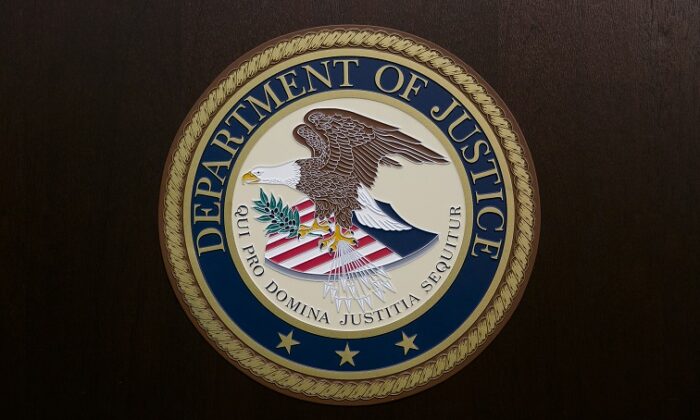Princeton Dropping Woodrow Wilson’s Name Because of His ‘Racist Thinking’
A Chinese professor was found guilty on June 26 of theft of trade secrets, and the more serious charge of economic espionage, the latest conviction in the Trump administration’s clamp down on Chinese state-sanctioned theft of American intellectual property.
A federal judge in San Jose, California found Zhang Hao, 41, guilty after a four-day trial.
Zhang was arrested in 2015 after he flew to Los Angeles for a conference. Prosecutors accused Zhang of conspiring with a colleague from the University of Southern California, and four others, to steal technology from two U.S. companies for the benefit of the Chinese regime. The technology in question filters out unwanted signals in wireless devices, such as mobile phones and tablets, and has both consumer and military applications.
The technology, stolen from Avago Technologies, one of the victim companies, took the firm more than twenty years of research and development to build, according to the justice department.
“Economic espionage is a pervasive threat throughout the United States, particularly to the San Francisco Bay Area and Silicon Valley which is the center of innovation and technology,” FBI Special Agent in Charge John F. Bennett said in a statement.
The verdict comes amid souring relations between the Washington and Beijing, with the Trump administration toughening its stance against the regime in response to Beijing’s coverup of the outbreak and its recent move to tighten its grip on Hong Kong.
U.S. National Security Advisor Robert O’Brien in a recent speech said the administration would push back against the range of threats posed by the communist regime. FBI Director Christopher Wray also said this week the agency has over 2,000 active investigations that trace back to the regime.
According to the justice department, Zhang met his co-conspirator, Pang Wei, while studying for a doctorate in electrical engineering at the University of Southern California, where they both conducted research on radio-filtering technology with funding from the defense department. After graduating in 2006, Zhang went to work for Skyworks Solutions Inc., based in Massachusetts, and Pang was employed by Avago in Colorado.
Prosecutors said that in Oct 2006, Zhang and his co-conspirators started a business in China to compete with Avago and Skyworks—while Zhang and Pang worked at those companies. They stole formulas, source code, technical specifications, design kits, and other documents marked as classified or proprietary from their American employers, the justice department said.
Then in 2008, Zhang and Pang connected their venture to Tianjin University (TJU), a premier technical school that sits under China’s ministry of education, in which the institution agreed to finance them in setting up radio-filter technology production base in China, prosecutors said. They quit their jobs and relocated to China in 2009, where they took up professorships at the Chinese university.
At TJU, the professors set up another company incorporated in the Cayman Islands following a plan laid out by TJU officials, prosecutors said. Zhang also applied for patents in his own name in the United States and China using the stolen technology. He also worked with the trade secrets in a lab he founded at TJU, the department said.
“The defendant plotted with Tianjin University to take trade secrets from two U.S. companies, including his own employer, to China for the benefit of the Chinese Government,” Assistant Attorney General for National Security John C. Demers said in a statement.
Zhang faces up to 15 years in prison for the charge of economic espionage, and 10 years for theft of trade secrets. His sentencing hearing is scheduled for Aug. 31. The five other co-conspirators are in China, and have not faced trial in the United States.
Focus News: Chinese Professor Found Guilty of Economic Espionage, Theft of US Trade Secrets
Mississippi Governor Says He’ll Sign Bill Changing State Flag If Legislature Passes It
